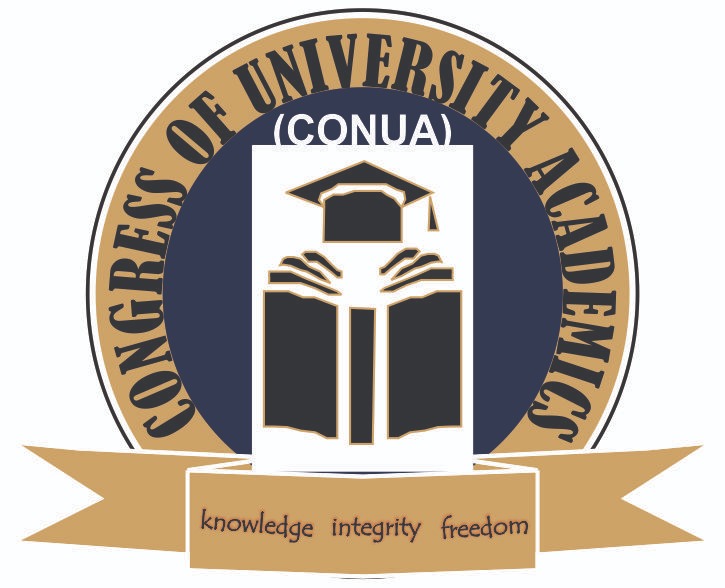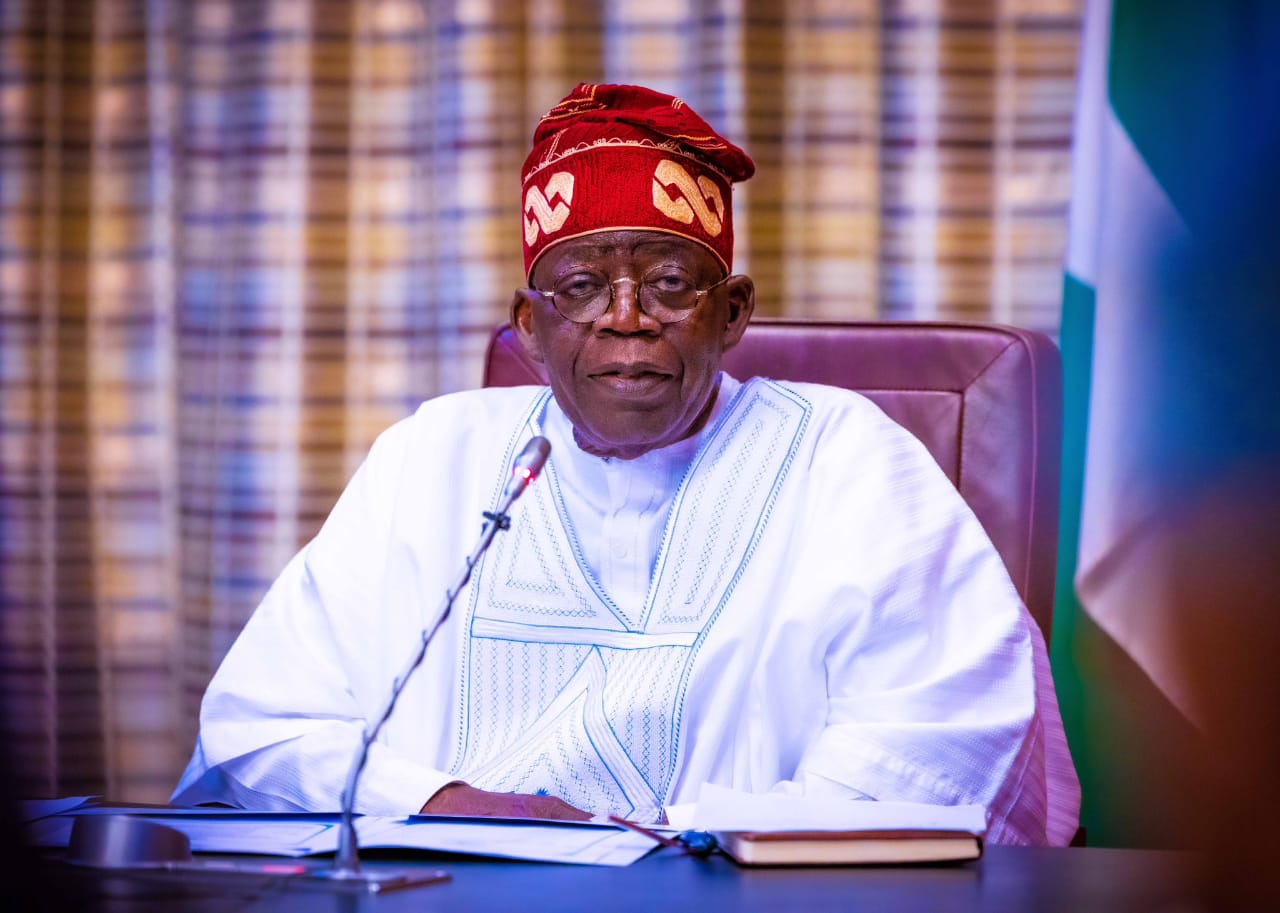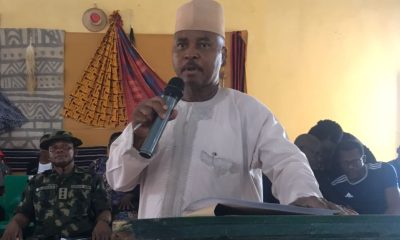COVER
FG Begins Oil Theft Investigation, Inaugurates 11-member Panel

By Mathew Dadiya, Abuja
The National Security Adviser, Maj.-Gen. Babagana Monguno (retd), yesterday inaugurated 11-man Special Investigative Panel on Oil Theft/Losses in Nigeria.
The panel, which is chaired by the Interim Administrator, Presidential Amnesty Programme, retired Maj.
-Gen. Barry Ndiomu, has seasoned administrators and retired top military and police officers as members with Mr. David Attah as Secretary.While inaugurating the panel, Monguno said that Nigeria was currently facing monumental loss of revenue that ought to have accrued from the sale of crude oil, being the main source of its foreign exchange earnings.
He said the escalation of acts of vandalism and theft of crude oil had led to significant decline in production, with associated impact on revenue.
According to him, the enormous losses are caused mainly by oil theft, orchestrated by unscrupulous elements.
NSA said that Nigeria had consistently failed to meet its daily production quota of about two million barrels per day, as provided by the Organization of Petroleum Exporting Countries (OPEC).
He added that the country’s current crude production struggles to meet even one million barrels per day, adding that recent interventions by the security agencies had revealed massive illicit platforms of stealing ranging from marine evacuations via Vessels, and load-outs from illegal operations platforms.
He added that the extent of the oil and revenue losses threatened the economy constraining the administration to revert to less popular monetary and fiscal policies to address revenue side constraints with dire implications.
“Government has been briefed on the dwindling economic fortunes including, inability to replenish foreign reserves and reduction in revenue thereby, affecting accruals into the Federation Account.
“With the scale of the theft and losses and the alleged complicity of regulatory agencies/officials and security personnel as well as the involvement of international collaborators, the enterprise is deeply entrenched and would be extremely, difficult to exterminate without very stern and decisive action by Government.
“The menace of oil theft/losses is completely unacceptable, considering its attendant impact on the economy, national development and security.
“It is an affront on Government and its institutions, which must be tackled without further delay.
“It is in this connection that Government worried by the ugly trend, among other things, directed the setting up of a Special Investigative Panel on Oil Theft/Losses in Nigeria to investigate all aspects of crude oil theft, identify the culprits and submit its Report for necessary action,” he said.
Monguno said the panel was expected to investigate oil theft/losses in all its ramifications and propose wide ranging array of implementable recommendations to enable this Administration take decisive action to end the criminal enterprise within the shortest possible time.
He said members were appointed based on their proven integrity, track record of service, competence and dedication to the national course.
He urged them to work with a view to unraveling individuals and groups perpetrating the national economic crime, no matter how highly placed they might be.
The Terms of Reference (ToRs), according to NSA, are to ascertain the circumstances surrounding the illegal insertion into the Trans-Escravos Pipeline (TEP) around Yokri area in Burutu Local Government Area of Delta State.
“They are to establish the ramifications of crude oil theft/losses in Nigeria; ascertain the causative factors immediate and remote, of crude oil/theft/losses in the country and ascertain the extent of crude oil theft/losses in the country.
“With the widest possible amplitude, identify persons/entities whether public, private or foreign, involved in the criminal enterprise and establish the level of culpability of identified persons/entities in the enterprise.
“The panel is to also examine the specific roles of regulatory agencies; security agencies, tiers/arms of government and International Oil Companies (IOCs) in aiding and abetting the criminal enterprise”.
“They are to also assess the efficacy of security architecture/arrangement in tackling crude oil theft/losses and associated petroleum products and recommend appropriate commensurate and sufficiently, deterrent sanctions on all those culpable,” he said.
Monguno also tasked the panel to recommend steps/procedures/processes to be taken by Government to eliminate the enterprise in the industry to prevent future occurrence; and make any other recommendations on any other issue incidental to the terms of reference.
He said the panel was expected to commence its assignment with immediate effect and to conclude as well as submit its report on or before Feb. 21, 2023.
The Permanent Secretary, Special Services, Office of the Secretary to the Government of the Federation, Aliyu Yerro, said the menace of crude oil theft had greatly impacted the nation’s revenue growth.
Yerro said the challenge had necessitated the setting up of the panel, adding that in spite of the huge amount of money spent by government to secure its maritime domain.
He said expressed confidence that the panel had the capacity to proffer solution to the issue of crude oil theft in the country.
The Chairman of the Panel, retired Maj.-Gen. Barry Ndiomu, said the expertise of each individual on the panel was sufficient to help them fulfil the objectives of setting up the panel.
He said the panel would leave no stone unturned by digging deep to unravel not only the incidences of oil theft/losses but, pre-disposition and causative factors as well as groups and individuals responsible for the criminal enterprise.
“We shall work hard to make you proud not least, for the confidence reposed on us,” he said.
COVER
May 29th Tragedy: Flash flood kills 21and wash away 50 houses in two Niger Communities

From Dan Amasingha, Minna
Tragedy struck in two Niger Communities as flash accompanied by heavy down pour that lasted for hours led to heavy flood that claimed 21 lives and washed away over 50 houses. The heavy down pour which started late on Wednesday, the 28th of May lasted till mid Thursday leaving behind tells of woes and deaths.
Niger State emergency management agency confirmed the deadly flood in a statement by the Director General Abdullahi Baba Ara on Thursday evening. ” NSEMA is in receipt of report of a deadly flood disaster that ravaged two communities of Tiffin maza and Anguwan hausawa in Mokwa town of Mokwa LGA” He disclosed that, the incidence occurred last night (Wednesday)during a torrential downpour of very high intensity that lasted several hours.According to him, the surging flood water submerged and washed away over 50 residential houses with their occupants.Tge Agency Director General disclosed that, ” in response the Agency, in collaboration with Mokwa LG Authority, local divers and very brave volunteers are conducting search and rescue operation to rescue survivors and recover corpses .” At present 3 servivors ( a woman and her 2 children) are receiving treatment for wounds and shock at Mokwa general, while 21 corpses have so far been recovered of those who sadly loss their lives in the incidence” Alhaji Abdullahi Baba Ara said over 10 persons are still missing as search and rescue operation is still ongoing.COVER
My Administration, Policies Are Working, Says Tinubu

By Andrew Oota , Abuja
President Bola Tinubu has declared that his administration’s economic reforms and policies were working for the progress of Nigeria and the good of all.
The President also stated that his administration would make life better for Nigerians acknowledging the sacrifices made so far, with a conviction that his vision for the country is clear.
Tinubu said this in a statement issued to commemorate the second anniversary of his administration on Thursday, May 29, 2025.
He stated that his administration had stabilised the nation’s economy, noting that “we are now better positioned for growth and prepared to withstand global shocks.
”He pointed out that , “Today, I proudly affirm that our economic reforms are working. We are on course to build a greater, more economically stable nation.
“Under our Renewed Hope Agenda, our administration pledged to tackle economic instability, improve security nationwide, reduce corruption, reform governance, and lift our people out of poverty.
“While implementing the reforms necessary to strengthen our economy and deliver shared prosperity, we have remained honest by acknowledging some of the difficulties experienced by our compatriots and families.
”We do not take your patience for granted. I must restate that the only alternative to the reforms our administration initiated was a fiscal crisis that would have bred runaway inflation, external debt default, crippling fuel shortages, a plunging naira, and an economy in a free-fall.
“Despite the bump in the cost of living, we have made undeniable progress.”
The president further stated that he acknowledged the sacrifices many Nigerians have been making for the development of the country, adding: “Our journey is not over, but our direction is clear. So is our resolve to tackle emerging challenges.
“By the Grace of God, we are confident that the worst is behind us. The real impact of our governance objectives is beginning to take hold.
“The future is bright, and together, we will build a stronger, more inclusive Nigeria that we can all be proud of.” He said.
COVER
Seven Months After, Reps Pass Harmonized Tax Reform Bills

By Eze Okechukwu and Ubong Ukpong,Abuja
House of Representatives on Wednesday passed the tax reform bills transmitted to the National Assembly by President Bola Tinubu in October 2024.The bills were passed at a session presided over by the Deputy Speaker, Benjamin Kalu.
The development followed the adoption of the harmonised versions of the reform bills by both the House and the Senate. At plenary on Wednesday, the House of Representatives considered the report of the conference committee, which harmonised the bills. The Chairman of the House Committee on Finance, Abiodun Faleke (APC, Lagos), who headed the House team to the conference committee, presented the conference report to the House for consideration.According to him, the Conference Committee met and agreed on all areas of difference in the version passed by both chambers of the National Assembly. He stated that there were 45 areas of difference in the Nigeria Tax Administration Bill, 12 areas of difference in the Nigeria Revenue Service Bill, 9 areas of difference in the Joint Revenue Board Bill and 46 areas of difference in the Nigeria Tax Bill, adding that all grey areas were resolved ahead of the passage. While the conference committee agreed to retain the Senate version in some of the clauses, they also retained the House version in some others, making amendments in a few others. The conference committee agreed to the imposition of a 4 per cent development levy on the assessable profit of all companies chargeable to tax under Chapters 2 and 3, except small companies and non-resident companies. They also agreed that the levy shall be collected by the Nigeria Revenue Service and paid into a special account created for the same purpose.In the sharing formula, the committee agreed that 50 per cent of the tax would go to the Tertiary Education Trust Fund, 15 per cent to the Education Loan Fund (up from 3 per cent agreed by the House), and 8 per cent to the Nigeria Information Technology Development Fund.
Similarly, the National Agency for Science and Engineering Infrastructure is to get 8 per cent (down from 10 per cent earlier agreed by both chambers), the National Board for Technology Incubation is to get 4 per cent from the fund, defence and security infrastructure is to get 10 per cent while cyber security fund will get 5 per cent.
Meanwhile, the Social Security Fund, Nigeria Police Trust Fund, and National Sports Development Fund were excluded from the list of beneficiaries passed by the House of Representatives.
The committee also adopted a new clause 158, which imposes a 5 per cent surcharge on chargeable fossil fuel products provided or produced in Nigeria and shall be collected at the time a chargeable transaction occurs.
The controversial Value Added Tax sharing formula was not part of the areas of disagreement between the two legislative chambers.
In his remarks, Kalu said the parliament has played its part in ensuring that the country moves forward, even as he urged the executive arm of government to do its part.
In his contribution, a member of the House representing Gwoza/Damboa/Chibok Federal Constituency, Borno State, Ahmed Jaha warned those who will clean up the bill not to tamper with any of the clauses passed, saying “Where the T is not crossed, don’t cross it, where the I is not dotted, don’t do it. We have the original copies of the bills as passed before and after harmonisation.
“We have had cases in the past where those in charge of cleaning up the bills tamper with it and at the end of the day, the President will withhold assent. That must not happen.”
That said, the All Progressives Congress lawmaker singled out Speaker Tajudeen Abbas and Deputy Speaker, Benjamin Kalu for praise, saying, “I want to thank your leadership for the role you played in making these bills a success. I also want to thank the Chairman of the Committee, Abiodun Faleke. He showed that he is truly a good elder. He provided a lot of training for some of us, and I want to say that this is the way to go.”
In a related development, the Senate has approved the Rivers State 2025 budget for a second reading.
The budget, which totals ₦1,480,662,592,442 trillion, was presented by the Senate Leader, Senator Michael Opeyemi Bamidele, on Wednesday.
Bamidele explained that the Senate had assumed legislative powers over Rivers State following the declaration of a State of Emergency in the state.
Supporting the motion, Senator Solomon Adeola Olamilekan emphasised the urgency of passing the budget to ensure that the people of Rivers State feel the impact of governance.
He said, “Mr. President, I am not exactly sure under what title this document is categorised, but from what I can see, it pertains to a budget under the state of emergency. I hereby support its passage for second reading so that the people of Rivers can feel the presence of government.”
With no opposition to the motion, the Senate President, Godswill Akpabio, conducted a voice vote and referred the budget to the Ad-hoc Committee on Overseeing the Rivers State of Emergency for further legislative action.
Senate announced that the Sole Administrator of Rivers State, Vice Admiral Ibok-Ete Ekwe Ibas, along with other key state officials, would appear before a Joint National Assembly Ad-hoc Committee to defend the state’s 2025 budget. NASS holds commemorate 25 years of democracy, holds joint session,
Also,President of the Senate, Senator Godswill Akpabio, has announced that a joint session of the National Assembly will be held on June 12 to commemorate Democracy Day.
He made the announcement after the upper chamber reconvened for plenary on Wednesday.
Akpabio revealed that the Senate leader, Senator Opeyemi Bamidele, the Senate minority leader, Senator Abba Moro as well as the Chairman senate services, Senator Sunday Karimi will meet with their counterparts in the House of Representatives to finalize the programme of activities and coordinate arrangements for the special session.



























